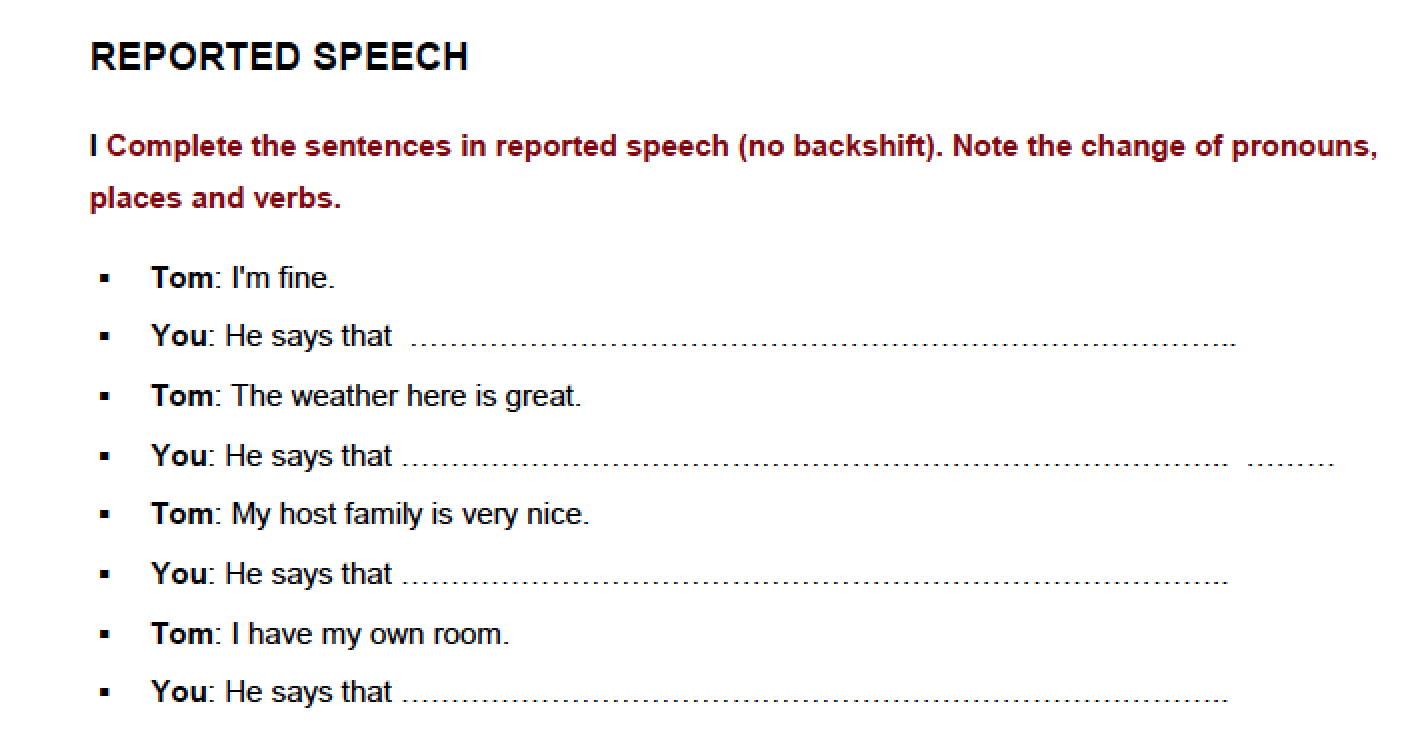

Then it’s time to turn them loose on some of the fun activities and games you’ll find on this page, so they can start using reported speech in sentences and descriptions. The question is, how can you make sure you give them a solid foundation in English reported speech?īy starting with worksheets, of course! When you use some of these 195 worksheets along with the more rigorous exercises in your textbook, your students will quickly gain experience in all the ways English can be used to report speech. Just about every language involves some form of reported speech - so once your students get the general idea, they should be off and running with any activities you give them. 'Would you like me to help you?'ĭo this exercise to test your grammar says, “We’ve got 195 reported speech worksheets just for you!” And once you’ve tried some of them in your classroom, we’re sure you’ll agree with thousands of other teachers all over the world, who’ve said, “ is a great site for ESL resources!”Īll cheesiness aside, reported speech can be a little confusing for some ESL students, but it’s simple to teach if you have the right tools. If the question is making an offer, request or suggestion, we can use a specific verb pattern instead, for example offer + infinitive, ask + infinitive or suggest + ing. He wondered when we could get it done by.She wanted to know if they'd brought their passports.The most common reporting verb for questions is ask, but we can also use verbs like enquire, want to know or wonder. In what, where, why, who, when or how questions, we use the question word to report the question. She asked us whether we'd finished the project yet.He asked me if I was going to the Helsinki conference.

'Are you going to the Helsinki conference?' In yes/ no questions, we use if or whether to report the question. You can learn about these changes on the Reported speech 1 – statements page. We also often make changes to the tenses and other words in the same way as for reported statements (e.g. Do you like) to a statement structure (e.g. In indirect speech, we change the question structure (e.g. Indirect speech: He asked me if I liked working in sales. To do this, we can use direct speech or indirect speech.ĭirect speech: 'Do you like working in sales?' he asked. Grammar explanationĪ reported question is when we tell someone what another person asked. Indirect speech: She asked me to write it down. Indirect speech: She asked me who I'd seen.ĭirect speech: 'Could you write that down for me?' she asked. Indirect speech: He asked me if I worked from home.ĭirect speech: 'Who did you see?' she asked. direct speech: 'Do you work from home?' he said.

Look at these examples to see how we can tell someone what another person asked.


 0 kommentar(er)
0 kommentar(er)
